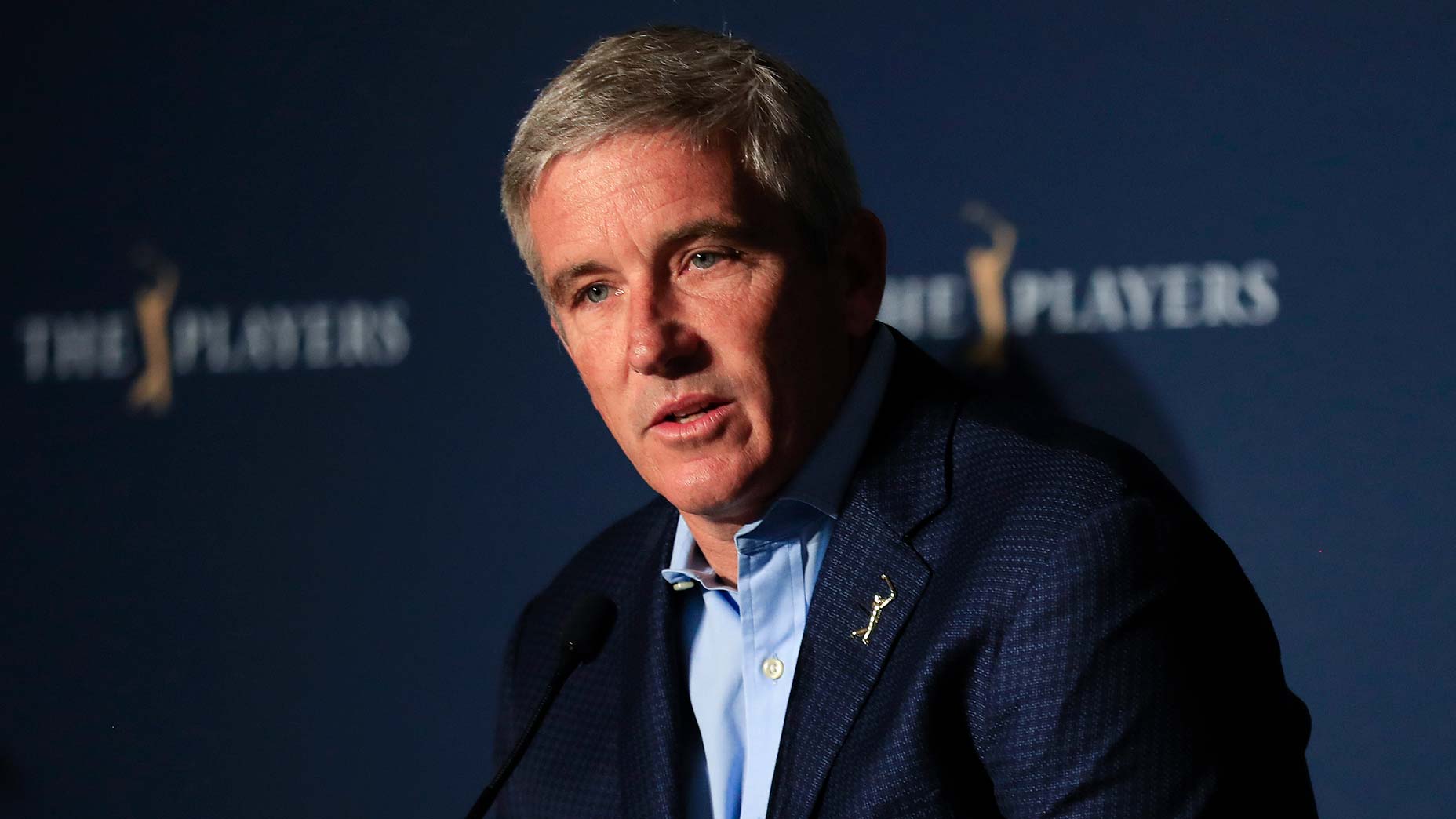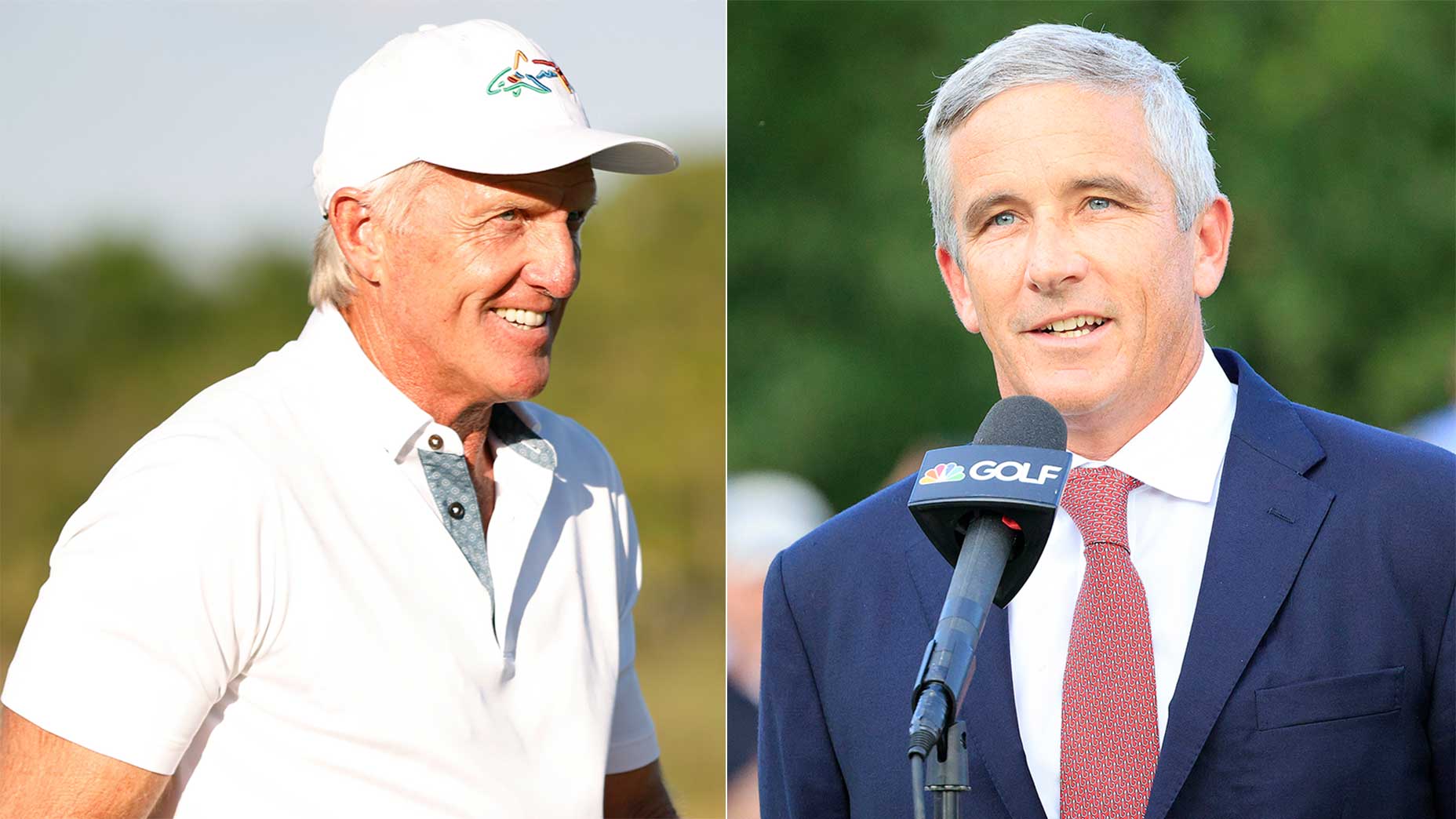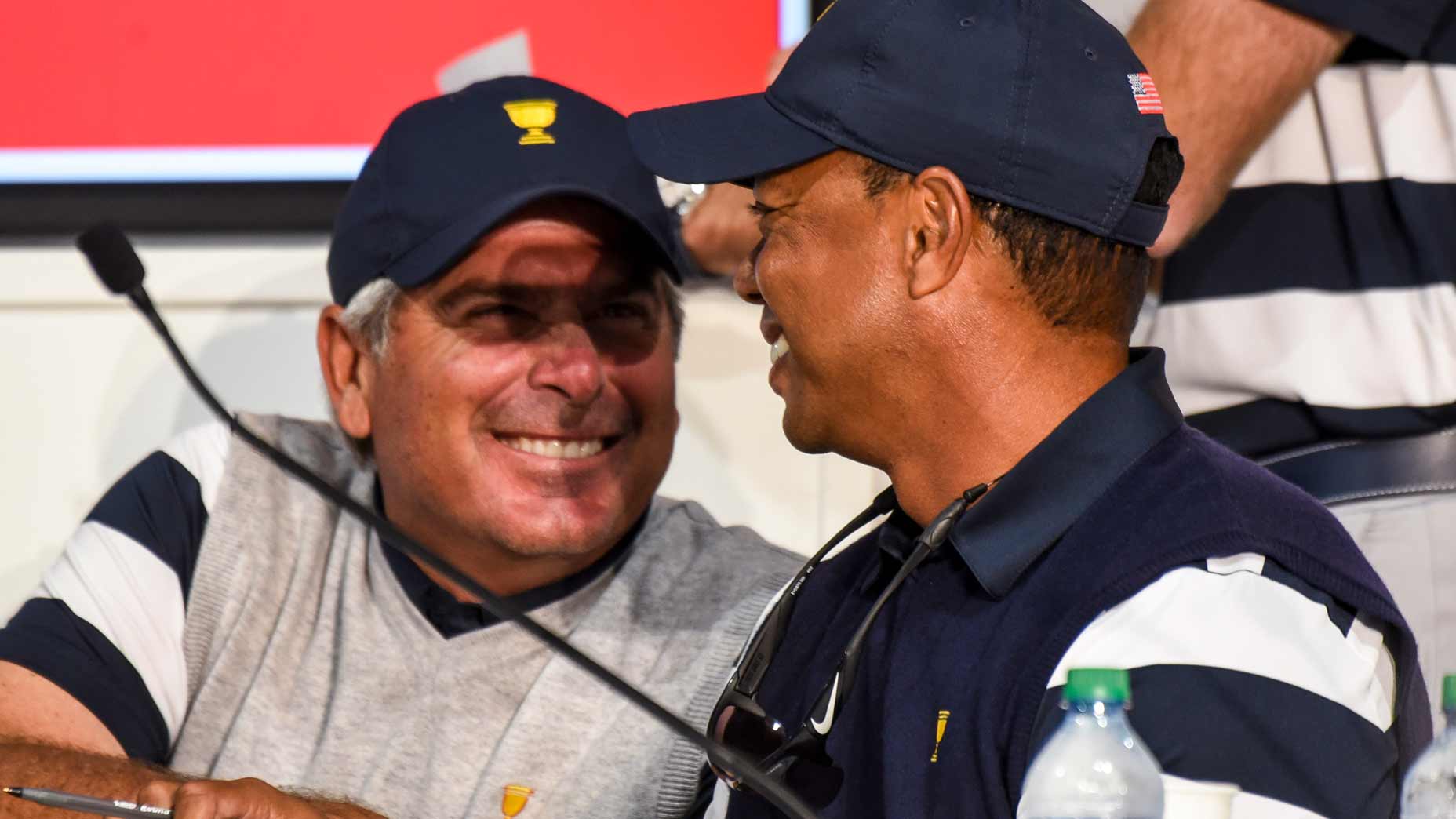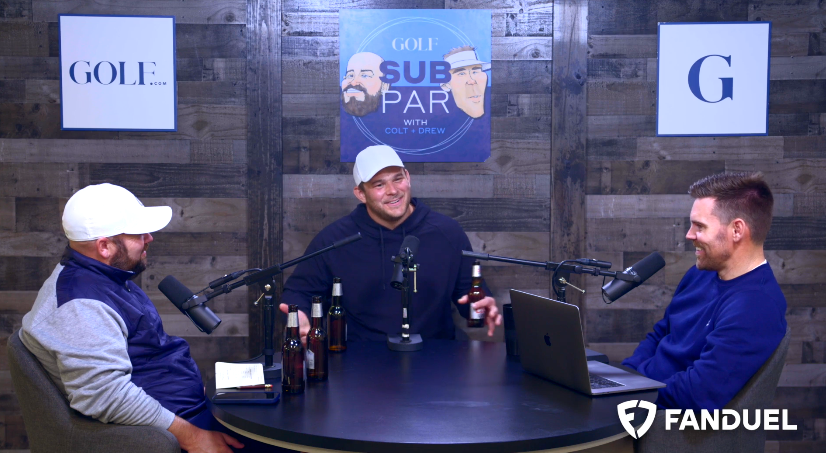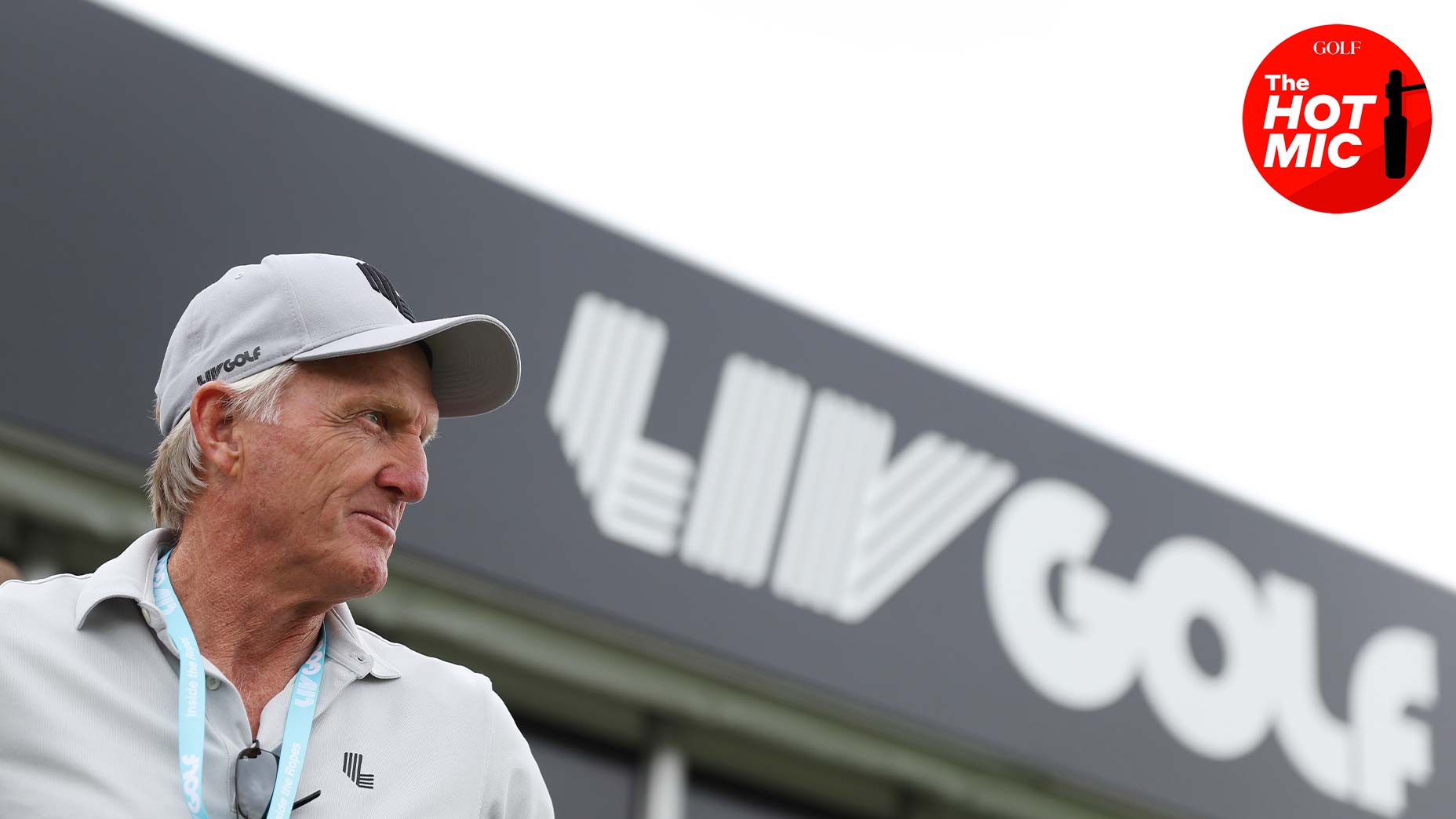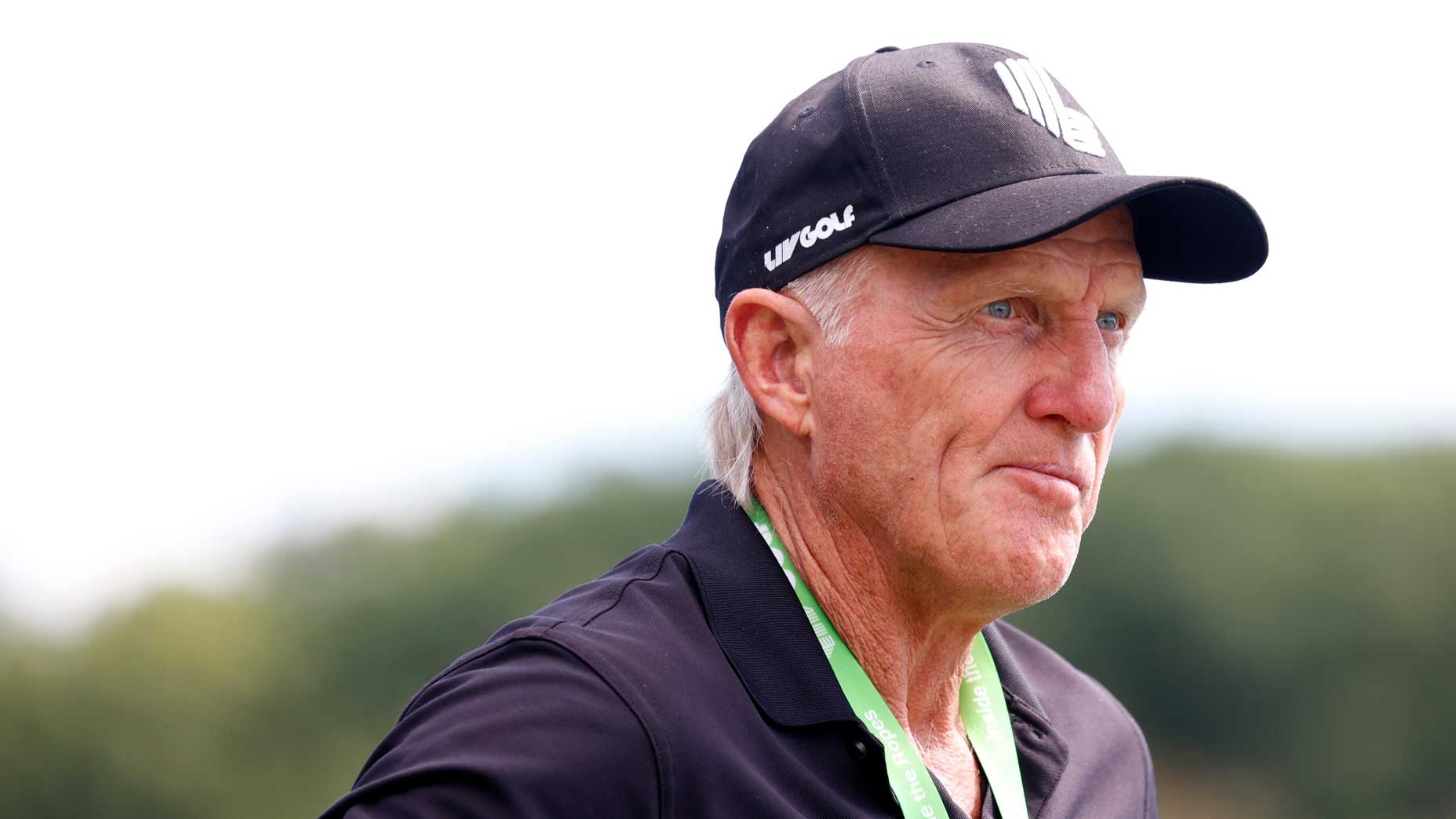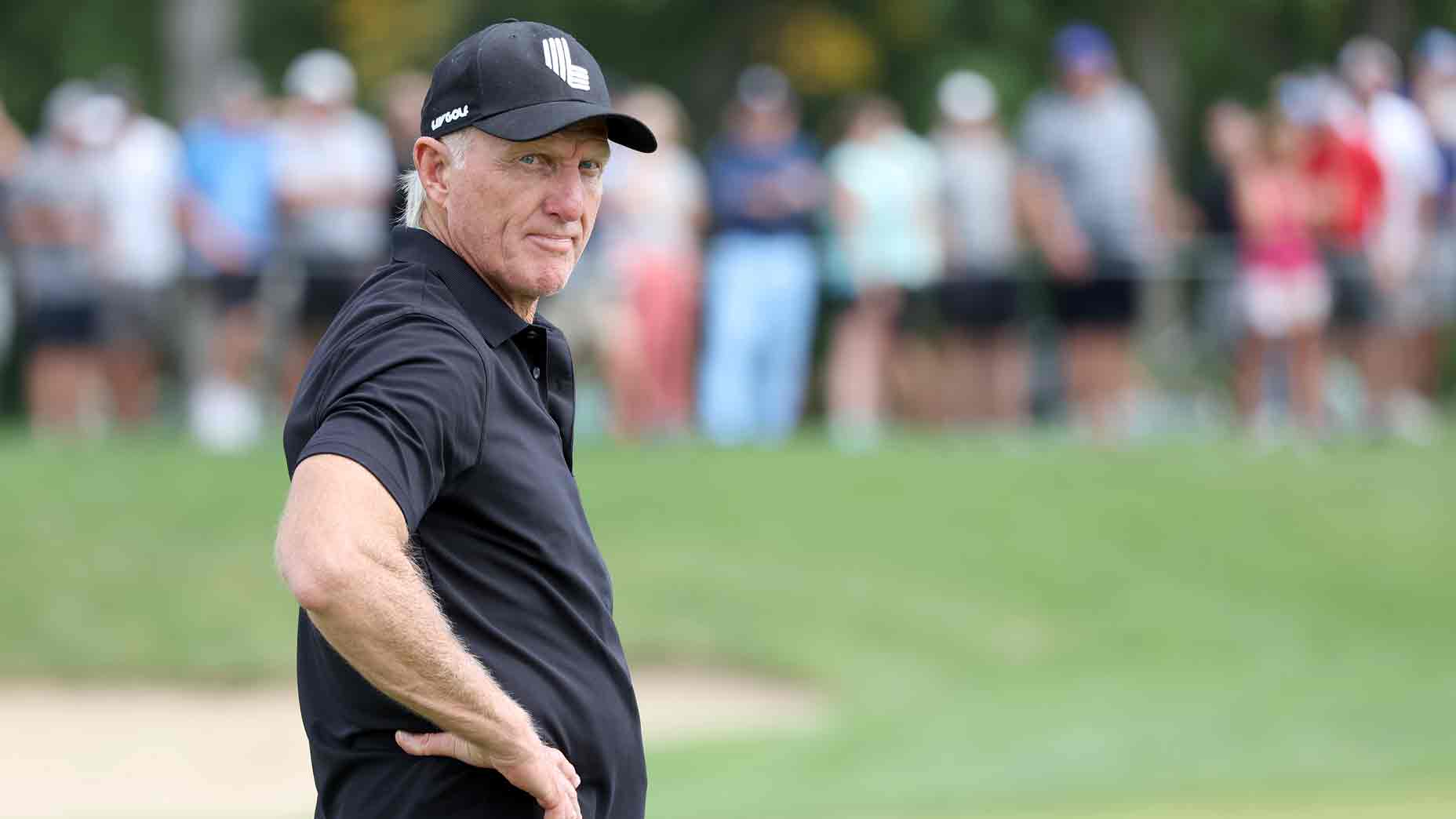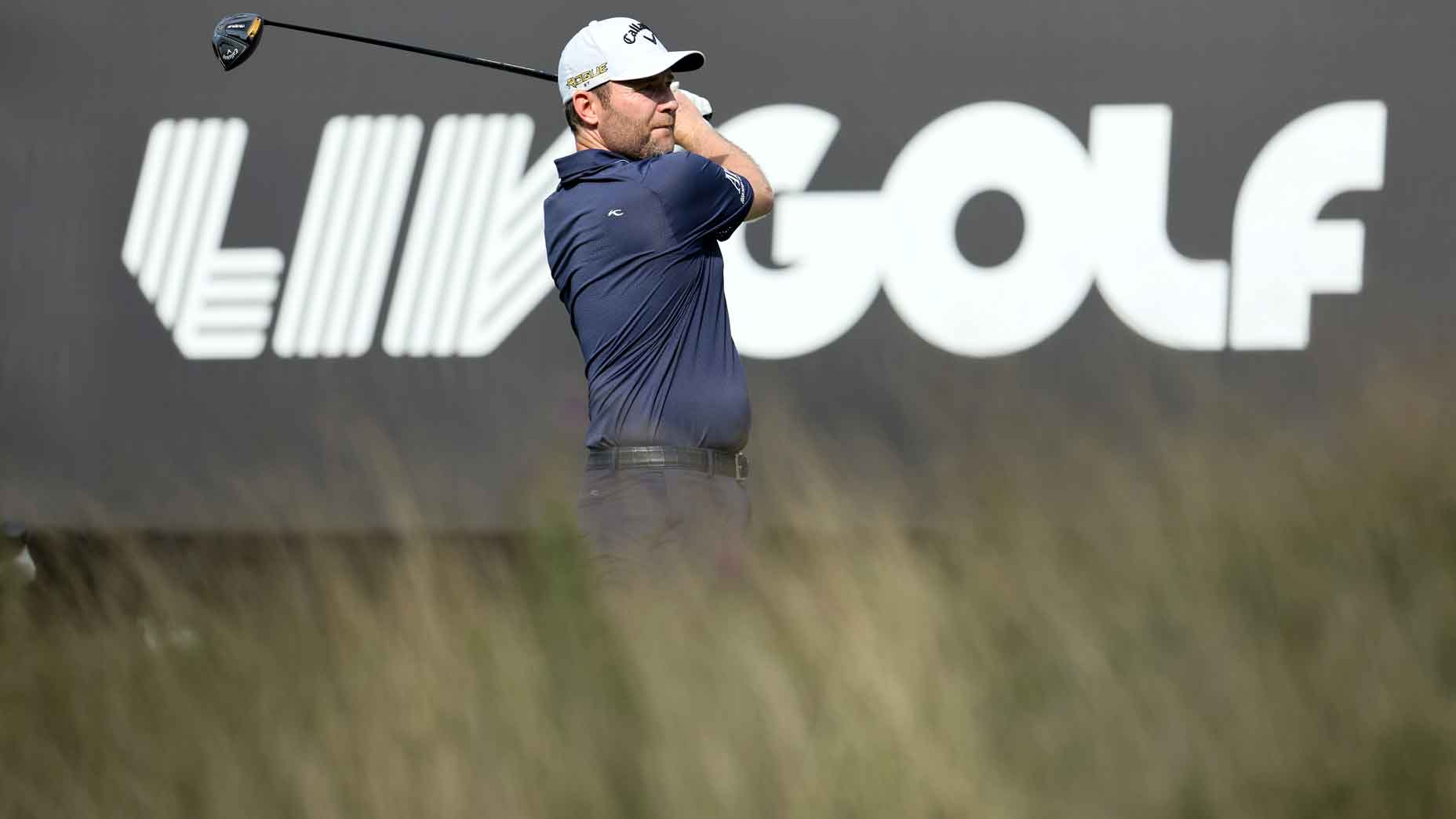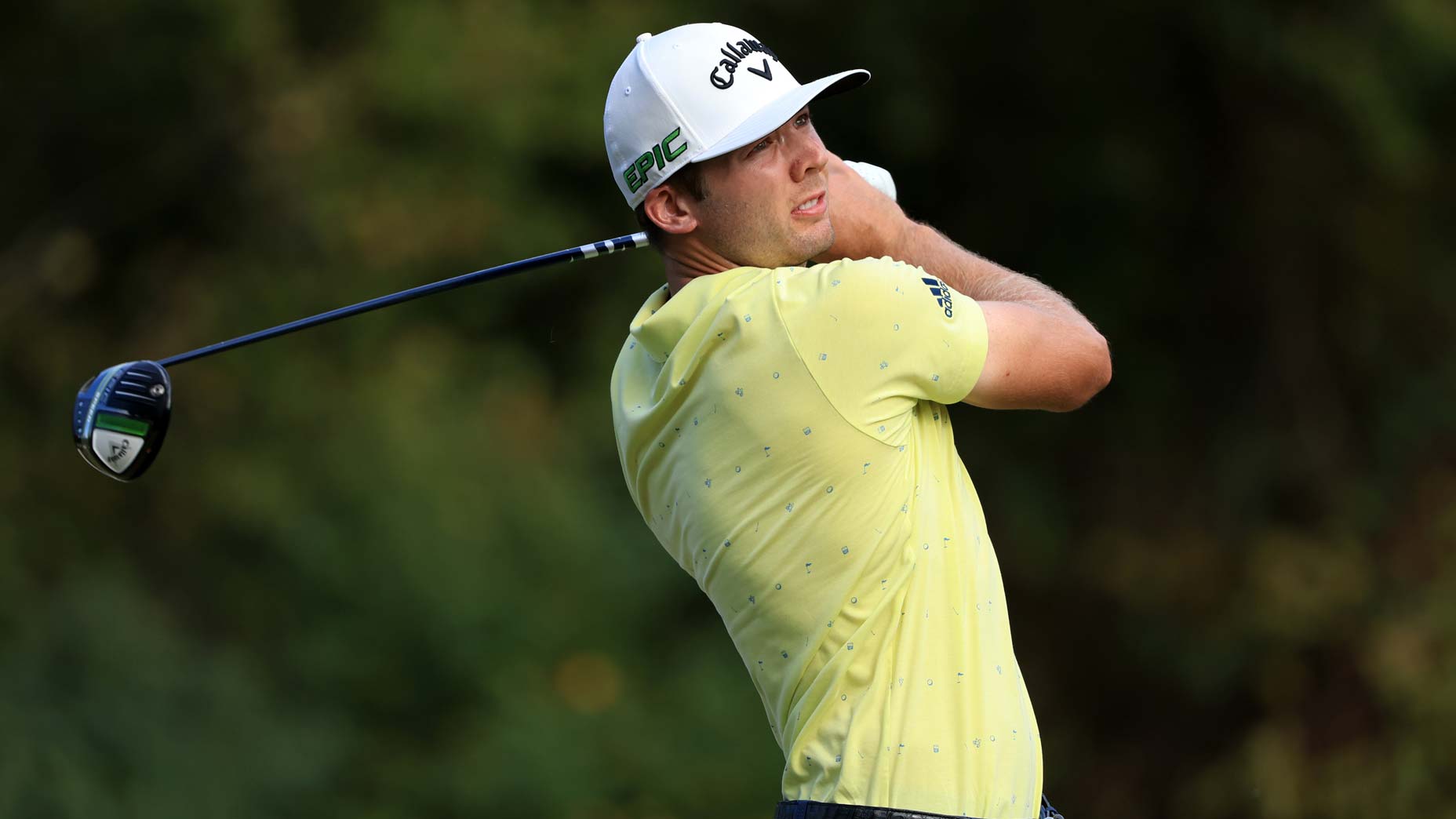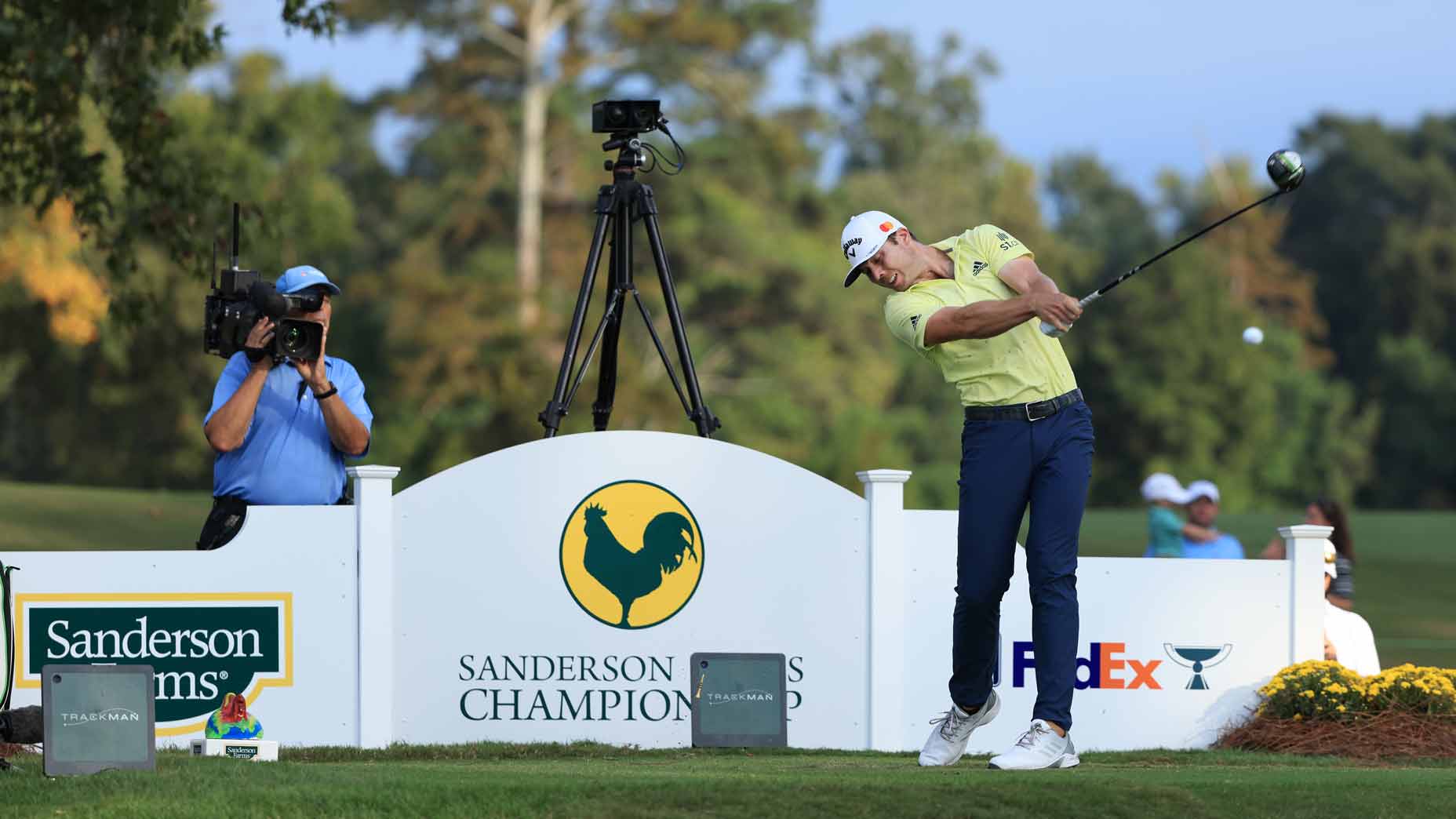A heated PGA Tour-LIV Golf legal battle is looming. Here’s how it could play out.

Greg Norman and Jay Monahan are both seeking their own visions of justice.
getty images
Up until this point, it has been a war of words.
Is it now time for a legal battle?
We’re speaking, of course, about the escalating conflict between the PGA Tour and Saudi-backed LIV Golf, which took a heated and unexpected turn Tuesday after the Tour denied a request for waivers from players looking to compete in the first LIV Golf event, in London, next month.
Greg Norman, CEO of the rival league, wasted no time decrying the decision, calling the Tour “an illegal monopoly” that is “anti-golfer, anti-fan, and anti-competitive.” If you smell an antitrust suit — or multiple such filings — you’re not alone.
The consensus among experts is that court dates are coming.
But when, exactly? And how might they unfold?
Craig Seebald is a partner and antitrust specialist with Vinson & Elkins, an international law firm.
We asked him to tease out the most likely scenarios and some of the legal questions surrounding them.
HOW DOES ANTITRUST LAW WORK?
Antitrust law is a sizable topic, but it mostly boils down to two concerns, Seebald says: monopolization and conspiracy. Broadly defined, the first is when an entity uses unfair practices to gain or maintain a stranglehold on a market. The second is when two or more entities work together to thwart competition. Any cases filed against the Tour would rest on one or both of those fronts.
WHO COULD FILE A SUIT?
A player or a group of players would be the most likely plaintiffs. But LIV Golf could also file suit, as could the government at the state or, more likely, the federal level through the Federal Trade Commission (FTC), which administers antitrust and consumer protection legislation.
As it happens, the FTC has scrutinized the PGA Tour before. In 1994, following a four-year investigation, attorneys for the agency determined that two Tour polices (one being the requirement that players get permission to compete in non-Tour events) violated antitrust laws, and recommended that the federal government nullify them. Though FTC commissioners ultimately decided not to take action, times have changed.
In its current makeup, Seebald says, the FTC is far more aggressive on antitrust matters. “I’m not sure how excited they get about a battle between golf leagues,” Seebald says. “They’re worried more about gas prices and such. But they could say, ‘Hey, we looked at this 30 years ago. Maybe we should look at it again.’”
WHEN MIGHT A SUIT BE FILED?
To file a viable antitrust claim, you need to be able to demonstrate that you have suffered harm. “I think that’s why we haven’t seen any suits so far,” Seebald says. “Because there’s hasn’t been harm yet.”
That could change.
Now that the Tour has denied players’ requests for waivers, Seebald says, “the ball moves to the players’ court.” If they decide to participate in the LIV Golf event anyway (and indications are that at least a handful of players will), the Tour will then have to determine what, if any, sanctions it wants to impose.
The Tour could issue fines. But, Seebald says, fines wouldn’t likely carry much sting, as the deep-pocketed Saudi-backed league would almost certainly indemnify those players by covering the fees. (In fact, Greg Norman promised Wednesday that LIV Golf would do exactly that.)
If, on the other hand, Tour commissioner Jay Monahan and Co. decided to ban players from certain Tour events, or suspend their Tour membership, the plot would really start to thicken. “At that point,” Seebold says, “the players would have to decide whether to file a lawsuit saying, ‘This rule is denying me my livelihood.’”
WHAT MIGHT A SUIT SEEK?
Monetary damages. The catch is that antitrust suits can take years to resolve, which doesn’t do much good for a plaintiff seeking swift results. “If you go after damages, it can drag on and on,” Seebald says. “You want the court to do something quickly.”
The shorter-term remedy, Seebald says, would be a motion seeking a court injunction that would prohibit the Tour from enforcing its rules. Players could seek this. So could LIV Golf. Or the feds. If such an injunction were granted, it would allow golfers to continue competing in LIV Golf events without facing sanctions from the Tour, even as a longer legal battle played out in the courts.
WHAT’S MOST LIKELY TO HAPPEN?
If, as expected, a handful of Tour pros play in next month’s LIV Golf event, the Tour is all but certain to act. But Seebald doesn’t think that it will issue fines. Suspensions and/or bans are more likely, he says, because they would be the more effective deterrent.
“From the Tour’s perspective, you want (LIV Golf) to bleed a slow death,” Seebald says. “And the way you do that is by them not having players. No disrespect to Robert Garrigus, but who is going to tune in to watch him when you can watch Jordan Spieth on the PGA Tour?”
IS CONSPIRACY AT WORK?
Another interesting question, Seebald says, is whether the PGA Tour has been coordinating its efforts with the DP World Tour. If so, conspiracy could be a valid legal complaint.
“If the suspensions cut across the PGA Tour and the European Tour [now called the DP World Tour], they would be really painful for the [Lee] Westwoods and [Sergio] Garcias of the world,” Seebald says. “The subject of coordination between the tours could be a subject of investigation.” Which, in turn, would raise European antitrust concerns as well.
HOW WILL COURTS RULE?
Impossible to know, but Seebald sees the short- and long-term landscape in different lights. “My feeling is that if they ban guys, [those players] will have a claim that won’t be dismissed quickly,” Seebald says. “Whether a couple of years down the road the players will ultimately win depends on a lot of things and is a bit more uncertain.”
WHAT SHOULD GOLF FANS DO?
Stay tuned.

